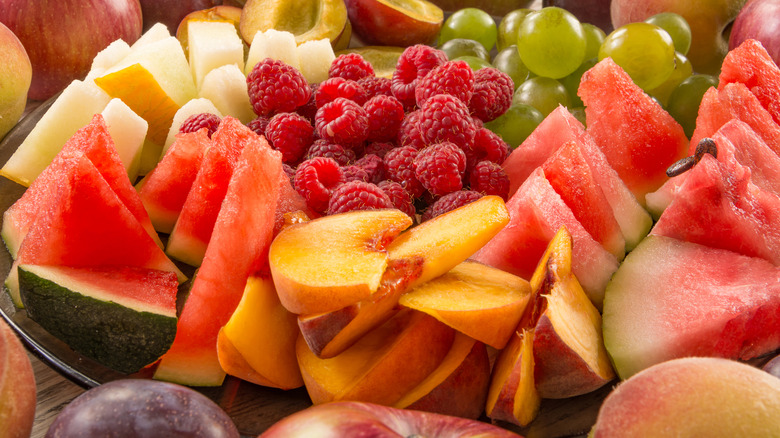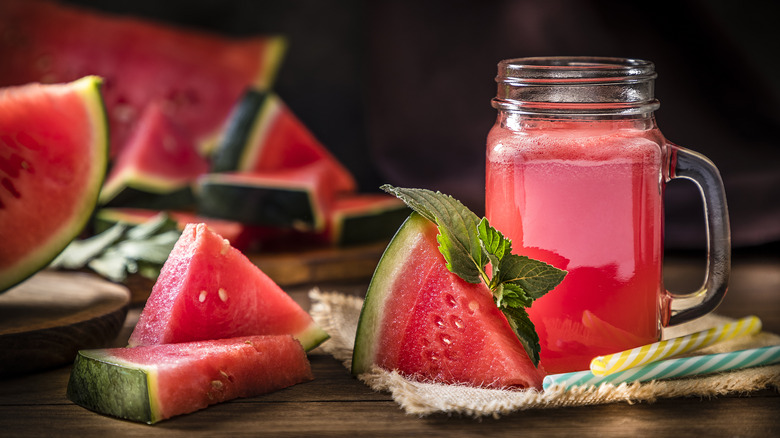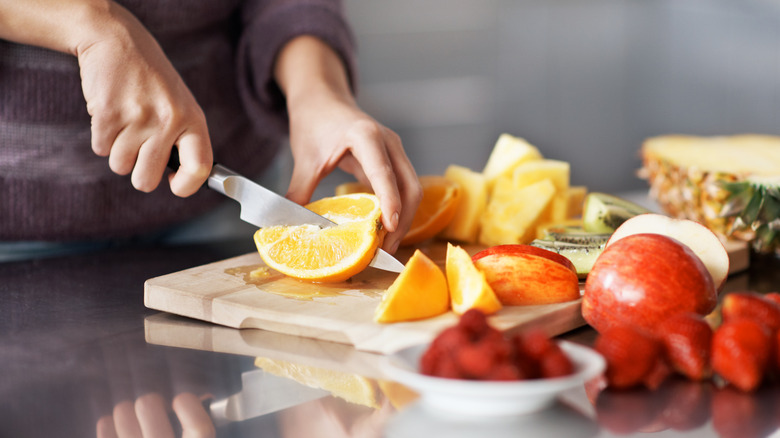The Quiet Contamination Risks Behind Pre-Cut Produce
If you're striving to maintain a balanced food intake following recommended guidelines, you're probably aware of the essential role that fruits and vegetables play in your diet. However, these foods can sometimes be expensive or challenging to prepare, and no one wants to go broke merely attempting to stay healthy. Perhaps, in search of cheaper options, you opt for smaller portion sizes or pre-cut produce to save time. Still, these options aren't always safe, and there are substantial health concerns associated with buying certain pre-cut produce.
While it may not seem that pre-cut produce would pose any health concerns — there are serious risks of contamination associated with these foods. These include E. coli outbreaks, bacteria growth, and a host of other hazardous foodborne illnesses that can jeopardize consumer health. Therefore, it is crucial to prioritize food safety and be cautious when purchasing pre-cut produce.
Why pre-cut produce can be dangerous
Pre-cut produce in the United States is at a high risk of contamination, mainly due to the lack of regulations ensuring the food is prepared safely and cleanly. While many grocery stores have procedures to maintain food safety, such as preparing the produce through a thorough process of cleaning, cutting, dehydrating, and vacuuming, pre-cut produce is often cut on-site. This on-site preparation makes it difficult for a regulator to ensure it's done safely.
A case in point occurred in 2019 when a salmonella outbreak was traced back to pre-cut melons, cantaloupes, and honeydew, as reported by the CDC. This happened because the rind is supposed to protect the inner fruit from contamination. But when the fruit is cut, contamination becomes more probable. Therefore, avoiding such products might be a wise choice unless you are aware of where and how your pre-cut produce was processed.
Produce that is highly susceptible
However, it's important to note that some pre-cut produce is more susceptible to harmful substances than others, and not all pre-cut produce you buy will harm you. In an interview with HuffPost, Dr. Bryan Quoc Le, a food chemist and industry consultant, suggested that the aforementioned pre-cut melons were particularly dangerous. This is because melons grow on the ground, making them prone to exposure to harmful bacteria or contaminated water that can infiltrate them. If the melon isn't properly washed, or the utensils used in cutting the fruit aren't clean, these bacteria can penetrate it and possibly contaminate it.
Some pre-cut produce can lose some of its nutritional value, like citrus fruits, for example. When citrus fruits are exposed to oxygen, they lose their vitamin C, making them less healthy for consumers. All in all, exercise caution when buying pre-cut produce. The best way to ensure your food isn't contaminated is to cut, rinse, and prepare it yourself.



